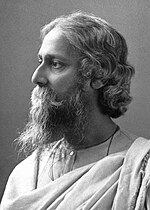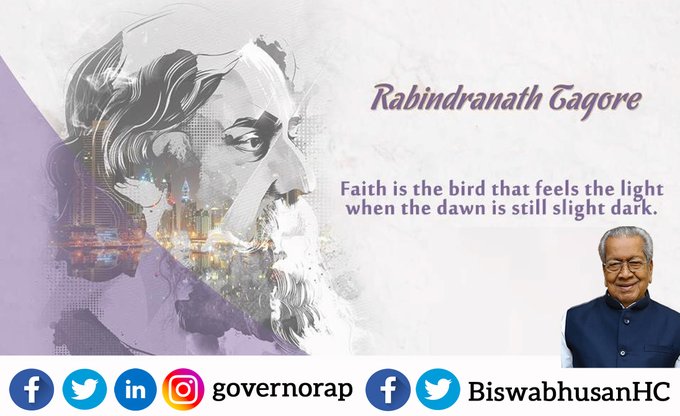Mighty Blessings from Darbar Peshi of...Lord Jagadguru His Majestic Holi Highness, Maharani Sametha Maharajah Sovereign Adhinayaka Shrimaan, Eternal, immortal abode of sovereign Adhinayaka Bhavan New Delhi, Erstwhile Rashtrapati Bhavan, New Delhi ,GOVERNMENT OF SOVEREIGN ADHINAYAKA SHRIMAAN, RAVINDRABHARATH,-- Reached his Initial abode (Online) as additional incharge of Telangana State Representative of Sovereign Adhinayaka Shrimaan, Erstwhile Telangana Governor, Rajbhavan, Hyderabad.
Friday, August 7, 2020
Jana Gana Mana
Jana Gana Mana
| English: "Thou Art the Ruler of the Minds of All People" | |
|---|---|
| Jana Gana Mana | |
 Sheet music for "Jana Gana Mana" | |
National anthem of | |
| Lyrics | Gurudev Rabindranath Tagore[1], 1911[2][3][4][5] |
| Music | Gurudev Rabindranath Tagore[1], 1911[2][4][3][5] |
| Adopted | 24 January 1950 |
| Audio sample | |
"Jana Gana Mana" (Instrumental) | |

Jana Gana Mana is the national anthem of India. It was originally composed as Bharoto Bhagyo Bidhata in Bengali by poet Rabindranath Tagore.[6][7] Later, it was written in sadhu Bengali or tatsama Bengali which is heavily sanskiritised.[8] The first stanza of the song Bharoto Bhagyo Bidhata was adopted by the Constituent Assembly of India as the National Anthem on 24 January 1950.[9][10] A formal rendition of the national anthem takes approximately 52 seconds. A shortened version consisting of the first and last lines (and taking about 20 seconds to play) is also staged occasionally.[11] It was first publicly sung on 27 December 1911 at the Calcutta (now Kolkata) Session of the Indian National Congress.[12]
Contents
History[edit]
The poem was first publicly recited on the second day of the annual session of the Indian National Congress in Calcutta (now Kolkata) on 27 December 1911. Then, it was followed on January 1912 at the annual event of the Adi Brahmo Samaj,[13][14] however, it was largely unknown except to the readers of the Adi Brahmo Samaj journal, Tattwabodhini Patrika. The poem was published on February 1905, under the title Bharat Bhagya Bidhata in the Tatwabodhini Patrika, which was the official publication of the Brahmo Samaj with Tagore then the Editor.
In 1912, the song was performed by Sarala Devi Chowdhurani, Tagore's niece, along with a group of school students, in front of prominent Congress members like Bishan Narayan Dhar, Indian National Congress President, and Ambika Charan Majumdar.
Outside of Calcutta, the song was first sung by the bard himself at a session in Besant Theosophical College in Madanapalle, Andhra Pradesh on 28 February 1919 when Tagore visited the college and sung the song. The song enthralled the college students while Margaret Cousins, then vice-principal of the college (also an expert in European music and wife of Irish poet James Cousins), both requested Tagore to create an English translation of the song and set down the musical notation to the national anthem, which is followed only when the song is sung in the original slow rendition style. Tagore translated the work into English while at the college on 28 February 1919, titled The Morning Song of India – via Wikisource. The college adopted Tagore's translation of the song as their prayer song which is sung till today.
The song was selected as national anthem by Subhas Chandra Bose while he was in Germany. On the occasion of the founding meeting of the German-Indian Society on September 11, 1942 in the Hotel Atlantic in Hamburg, Jana Gana Mana was played for the first time by the Hamburg Radio Symphony Orchestra as the national anthem of an independent India.[15]
Before it officially became the national anthem of India in 1950, "Jana Gana Mana" was heard in the 1945 film Hamrahi.[16] It was also adopted as a school song of The Doon School, Dehradun in 1935.[17]
On the occasion of India attaining freedom, the Indian Constituent Assembly assembled for the first time as a sovereign body on 14 August 1947, midnight and the session closed with a unanimous performance of Jana Gana Mana.
The members of the Indian Delegation to the General Assembly of the United Nations held at New York in 1947 gave a recording of Jana Gana Mana as the country's national anthem. The song was played by the house orchestra in front of a gathering consisting of representatives from all over the world.
Code of conduct[edit]
The National Anthem of India is played or sung on various occasions. Instructions have been issued from time to time about the correct versions of the Anthem, the occasions on which these are to be played or sung, and about the need for paying respect to the anthem by observance of proper decorum on such occasions. The substance of these instructions has been embodied in the information sheet issued by the government of India for general information and guidance. The approximate duration of the Full Version of National Anthem of India is 52 seconds and 20 seconds for shorter version.[11]
Lyrics[edit]
The poem was composed in a literary register of the Bengali language called sadhu bhasa, which is heavily sanskritised. The song has been written almost entirely using nouns that also can function as verbs
Full version[edit]
Original composition in Bengali (ভারত ভাগ্য বিধাতা)[edit]
| Bengali script | Latin transliteration (ISO 15919) |
|---|---|
জনগণমন-অধিনায়ক জয় হে ভারতভাগ্যবিধাতা! | Jana-gana-mana-adhināẏaka jaẏa hē Bhārata-bhāgya-vidhātā[a]! |
Official lyrics in Hindi (जन गण मन)[edit]
Devanagari script | Official Romanisation (bold indicates long vowels) | Latin transliteration (ISO 15919) |
Jana-gana-mana-adhinayaka jaya he | Jana-gaṇa-mana adhināyaka jaya hē |
Phonetic transcription[edit]
| IPA |
|---|
[dʒənə gəɳə mənə əd̪ʱinɑːjəkə dʒəjə ɦɛː] |

